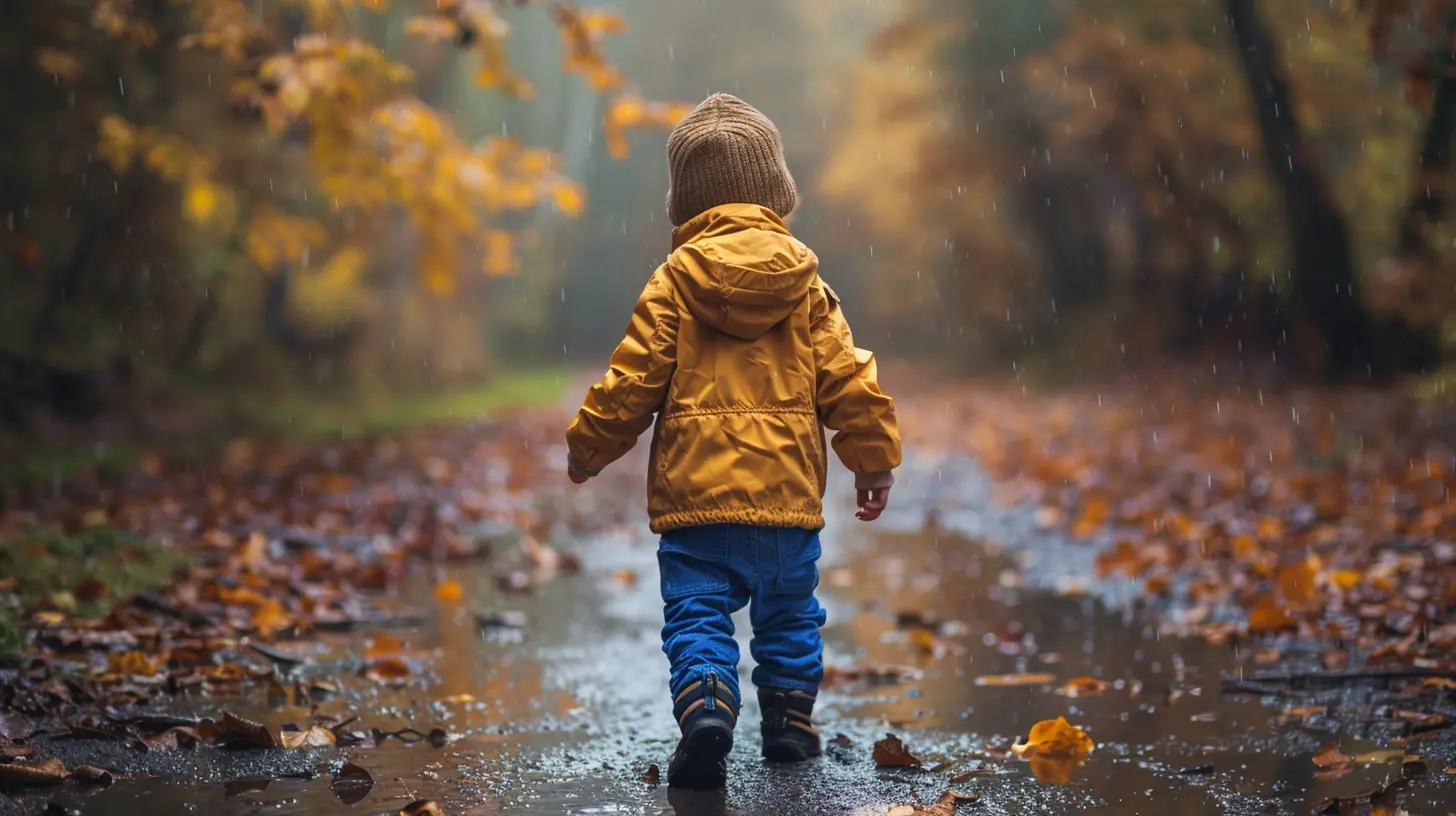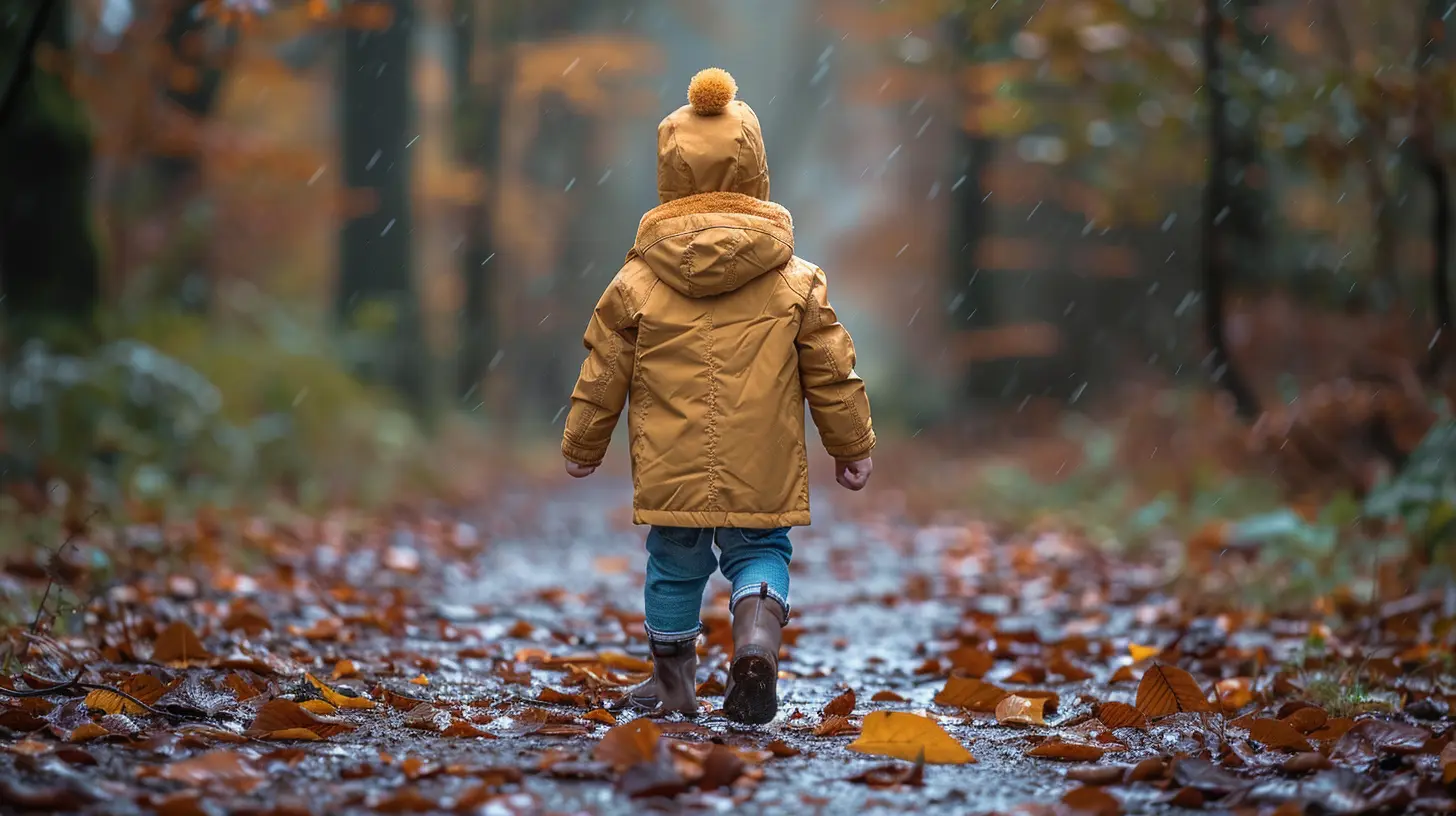Dealing With Separation Anxiety: Supporting Your Child’s Independence
29 March 2025
Separation anxiety is a tough challenge for both parents and children. It’s heartbreaking to see your little one cry, cling, or panic every time you leave. But guess what? It’s completely normal! Many kids go through this phase, and the good news is—it doesn’t last forever.
The key is finding the right balance between comforting your child and encouraging their independence. In this article, we’ll dive deep into understanding separation anxiety, why it happens, and how you can help your child feel secure even when you're not around.

What Is Separation Anxiety?
Separation anxiety is when a child feels extreme distress when separated from their primary caregiver. This usually starts around 8 months old and can peak between 1-3 years. However, some older children, even those starting school, might also experience it.It’s a natural part of development, showing that your child has formed strong emotional bonds. While it’s a positive sign of attachment, it can also be overwhelming when things like daycare, school, or babysitters come into the picture.
Signs of Separation Anxiety
Not sure if your child is going through separation anxiety? Here are some common signs:✅ Clinginess – Your child refuses to let go of you or follows you everywhere.
✅ Crying or tantrums – They cry, scream, or throw tantrums when you try to leave.
✅ Fear of new places or people – They might resist being left with a babysitter or at daycare.
✅ Physical symptoms – Complaints of stomachaches, headaches, or feeling sick when separation is about to happen.
✅ Sleep disturbances – Trouble sleeping alone or waking up frequently at night.
If any of these sound familiar, don’t worry—you’re not alone! The trick is providing reassurance while helping your child develop confidence and self-soothing skills. 
Why Does Separation Anxiety Happen?
Children thrive on routine and familiarity. When they don’t understand why you’re leaving or when you’ll be back, it triggers fear. A child’s brain is still developing, and the concept of time is different for them.Think about it—when you step out of the room, they don’t know if you're gone for one minute or forever. That uncertainty is scary! They might think, What if they don’t come back?
Separation anxiety often becomes more noticeable during transitions like:
- Starting daycare or preschool
- Moving homes or changes in the family dynamic
- Illness or stressful events (such as a parent going on a trip)
The important thing to remember is that your child isn’t trying to manipulate you. Their emotions are real. They just need help learning how to feel safe even when you're not there. 
How to Help Your Child Cope With Separation Anxiety
Now that we understand why separation anxiety happens, let’s talk about practical ways to ease your child’s fears and build their confidence.1. Practice Short Separations First
Start small. If your child isn’t used to being away from you, try brief separations before jumping into longer ones. Leave them with a trusted caregiver for 10-15 minutes and gradually increase the time.This helps them realize that you always come back.
2. Keep Goodbyes Short and Sweet
Dragging out a goodbye can actually make things worse. Keep it simple:👋 A quick hug, a cheerful "I'll be back soon," and then leave.
If you linger or seem anxious, your child picks up on that energy. Confidence is contagious—so if you act like everything is okay, they’ll start to believe it too.
3. Create a Goodbye Ritual
A consistent goodbye routine can be comforting. It could be something as simple as:- A secret handshake
- A hug and a high-five
- A special phrase like, "See you later, alligator!"
When goodbyes feel predictable, they become less scary.
4. Let Them Know When You’ll Be Back
Since young kids don’t fully understand time, avoid saying, "I'll be back soon." Instead, use events they know:- "I'll pick you up after nap time."
- "I'll be back after snack time."
This makes it easier for them to process.
5. Stay Calm and Confident
Even if your child is crying, resist the urge to run back or show hesitation. Instead of saying, "Are you okay?" which might reinforce their fear, try something like:"I know you’re feeling sad, but you’re safe! You’re going to have so much fun, and I’ll see you soon!"
Your reassurance is powerful!
6. Introduce Comfort Items
A small object from home can provide a sense of security. This could be:- A favorite stuffed animal
- A family photo
- A special bracelet or piece of fabric from your shirt
Having a familiar object can help ease the transition.
7. Validate Their Feelings
Instead of dismissing their emotions, acknowledge them:"I know it’s hard when I leave, but you are safe, and I always come back."
When children feel heard and understood, they manage their emotions better.
8. Encourage Independence Through Play
Games like peekaboo or hide-and-seek teach the concept that things (and people) disappear and return. Play-based learning is a great way to gently introduce the idea that separations are temporary.Other independence-building activities include:
🧩 Playing solo for short periods
🎨 Choosing their own clothes or toys
📚 Encouraging problem-solving and decision-making
The more confident they feel, the less separation anxiety they will experience.
9. Trust Your Child’s Caregiver
If your child senses that you’re unsure about the person caring for them, they’ll feel uneasy too. Talk positively about their teacher, babysitter, or daycare provider:"Miss Emily is so excited to play with you today!"
This sets a positive expectation.
10. Be Patient – It Takes Time!
Separation anxiety isn’t something that disappears overnight. Some days will be easier than others. The most important thing? Stay consistent and patient.Your child is learning a valuable life skill—how to feel safe and secure, even when you’re not right next to them. 
When Should You Be Concerned?
While separation anxiety is common, there are times when it might be more serious. If your child:❌ Has extreme panic or meltdowns every time you leave
❌ Avoids social situations or refuses to do daily activities
❌ Experiences prolonged distress that doesn’t improve over time
It may be worth talking to a pediatrician or child psychologist. Separation Anxiety Disorder (SAD) is a more severe form of anxiety that might require extra support.
Final Thoughts: You’ve Got This!
Helping your child through separation anxiety isn’t always easy, but with patience, love, and consistency, they will grow into a confident and independent little person. Their emotions are big, but so is your ability to guide them through this stage.Remember, every hug, reassuring word, and consistent routine helps them trust that no matter where you go, your love is always with them. 💛
Stay strong, Mama (or Papa)—this, too, shall pass!
all images in this post were generated using AI tools
Category:
Parenting ChallengesAuthor:

Noah Sawyer
Discussion
rate this article
5 comments
Thalyn Barron
Thank you for this insightful article! Navigating separation anxiety can be tough, but your practical tips and understanding approach truly resonate. It’s comforting to know we’re not alone in this journey. Supporting our children’s independence is essential, and your guidance makes it feel achievable.
May 2, 2025 at 3:36 PM

Noah Sawyer
Thank you for your kind words! I'm glad you found the tips helpful. Supporting our children's independence is so important, and we're all in this together!
Anisa Curry
Separation anxiety is a normal developmental phase for children. To support their independence, practice gradual separations, offer reassurance, and create a consistent routine. Encourage exploration while remaining emotionally available, fostering confidence and security as they learn to navigate new experiences.
April 5, 2025 at 4:00 AM

Noah Sawyer
Thank you for highlighting these essential strategies! Gradual separations and a supportive environment are key to helping children build confidence and resilience.
Noelle Rios
Empower your child by fostering independence; consistent support builds their confidence and eases separation anxiety effectively.
April 4, 2025 at 4:25 AM

Noah Sawyer
Thank you for your insightful comment! Encouraging independence is indeed key to building confidence and alleviating separation anxiety. Your support plays a vital role in this process.
Zevonis Monroe
Oh, please! Kids are born to be clingy — it’s their superpower! But hey, independence is the ultimate goal. Let’s embrace the tears and tantrums; it’s just part of their dramatic journey to freedom!
April 1, 2025 at 2:22 AM

Noah Sawyer
Absolutely! Embracing their clinginess and supporting their journey to independence is essential. Those tears are just steps toward building confidence!
Barrett McClure
Navigating separation anxiety is challenging for both parents and children. Understanding and patience are key. Encouraging independence while providing reassurance can foster confidence. Remember, it’s a journey, not a race.
March 29, 2025 at 5:49 PM

Noah Sawyer
Thank you for your insightful comment! You're absolutely right—patience and encouragement are essential in supporting our children's journey towards independence while managing separation anxiety.




